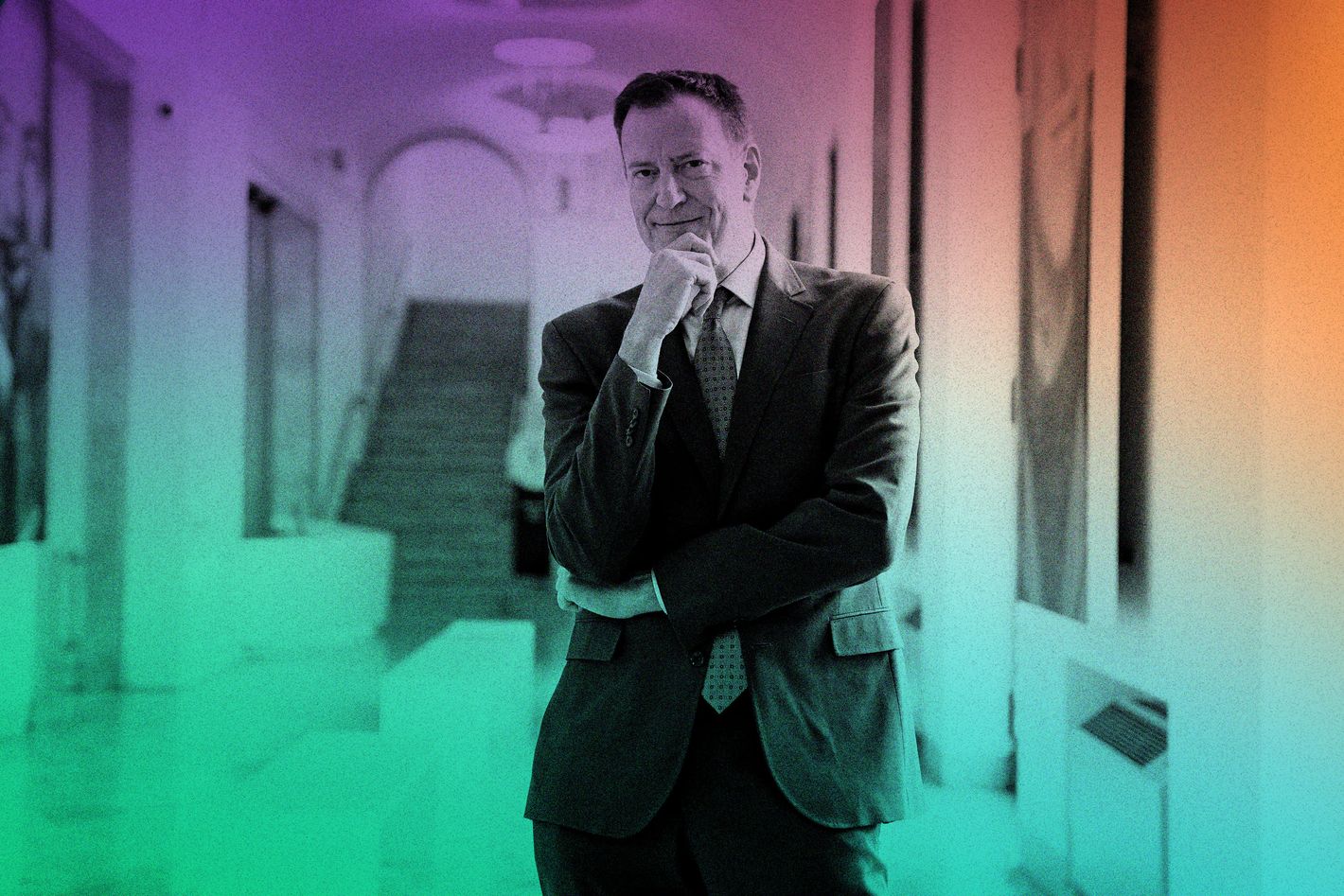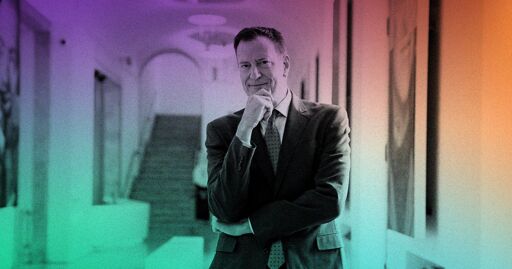 Photo-Illustration: Intelligencer; Photo: Getty Images
Photo-Illustration: Intelligencer; Photo: Getty Images
Bill de Blasio knows firsthand what the closing weeks of a mayoral race feel like. He is less familiar with a dramatic finish; in 2013 (after a hard-fought Democratic primary) and in 2017, De Blasio trounced his Republican opponents. This year’s frontrunner, the Democratic Socialist Zohran Mamdani, can’t breathe so easy, even if he does enjoy a hefty lead in the polls against Andrew Cuomo, Curtis Sliwa, and scandal-plagued incumbent Eric Adams — not when the Trump administration is throwing its weight around to push Adams and Sliwa out and force a two-man race.
De Blasio endorsed Mamdani earlier this month, and the two have plenty of political common ground, such as a focus on affordability. But de Blasio’s admiration clearly runs deeper than any policy platform. I spoke with him about why he thinks Mamdani is a uniquely talented politician, how the end of the race might play out, and whether it matters that Chuck Schumer still won’t endorse.
The polls have been telling a very consistent story**, with Mamdani getting support in the mid-forties, Cuomo in the mid-twenties, and Curtis Sliwa and Eric Adams well behind those two. What do you think would have to happen for Mamdani to lose at this point?**Well, I’m certainly not here to give you doomsday scenarios, but I think I’d flip the equation and say the best way for him to guarantee his victory is to break 50 percent. I think about his trajectory from the primary until now, because the primary is always a measure of just Democratic voters, so it’s a smaller universe, and he ended up low, mid-forties there. And then of course with the fuller distribution, even higher. But to convert that now to, give or take 45 percent of the overall city electorate — independents, Republicans, minor parties, everybody — that’s a major achievement, to basically take his primary performance and now superimpose it on the general election electorate. That’s a lot of movement.
So the first thing I’d say is that the trend line is extremely impressive and encouraging. And then the second piece is the turnout questions, which has become more and more central in the last 10 years. And I think we’ve seen here a shocking disparity between a candidate and a campaigner who has a truly well-defined, massive turnout operation, versus three other campaigns that show no evidence of that, and certainly no evidence of a grassroots organic turnout operation.
Yeah, Mamdani’s volunteers are everywhere. Right, and that really counts, considering so much of voting is emotional, spontaneous, last minute. Human contact in the final days is just immensely powerful, in terms of actually motivating someone to vote. So I really do believe his current 45 or so in polling probably translates to 50 percent or more in actual vote terms, because of that turnout differential. But obviously he has to execute that. Whether he’s up against one opponent or three opponents, it’s academic if he breaks 50 percent.
We still don’t know the final candidate lineup. There’s still all sorts of possibilities — six weeks is forever. One or more candidates might drop out, and of course that will change things. But what that doesn’t change is the way people are running their campaign. There’s really no such thing as six weeks out, a candidate having a conversion experience and suddenly turning into a different or better candidate. If you have not produced a compelling campaign by now, it’s locked in, basically. That’s a reason why Zohran’s team should feel some confidence, but not overconfidence.
And there’s also just external events. Inevitably things happen, and they do frame how people think. There’s been a lot of history of that in New York City. It doesn’t change anything about strategy. Something might happen in the world that affects people’s thinking, and you can’t plan for it. So what you do is continue just the steady growth and continue to build a turnout operation. And then if something really fundamental happens in the world, or in the city, it’s a question of how each candidate quickly and agilely responds to it. And in that kind of scenario, I would give Zohran a much greater likelihood of knowing how to do that, doing it in a way that people felt was real.
One other thing I’d say is that I still expect a huge amount of money to be thrown against him toward the end, and attempts to misrepresent him, which we saw in the last weeks before the primary. I assume it’ll happen again. It wasn’t effective in the primary, but I don’t think that will stop folks with a lot of money from trying. And you just don’t know how that plays out.
I was struck by something you said recently **about Mamdani: that “he is more talented in many ways” than you were. This was in the context of him reaching out to skeptical business leaders, which you said he did in a smart way. What in particular impresses you about Mamdani?**I would say on the broader talent level, he’s just a natural organic communicator. He has a really great ability to keep his message short and clear without dumbing it down. And I’ve noticed even in more spontaneous settings, his brain takes a question and breaks it down to something clear and understandable, but still emotionally meaningful. It’s just who he is. I would dare say I’d give some extra credit to his mom, because if you have a mother who explains the world to people in very emotional and visual terms, I’m sure that is a great influence. We’ve all been to movies where a single line or a brief scene can speak volumes. I think he’s organically learned that, and that’s a massive talent. His human ability to connect with people very fluidly — I have some of that, but I think he has more.
“Democratic socialism with a human face,” as you’ve put it**.**Yes, exactly. Look, you can drop me into any community in New York City, and I can relate to anyone, but he has a way of doing it that’s particularly engaging. Talent is such an interesting thing. I think of this through a sport, particularly my beloved baseball. Some players show up and they just can do things other people can’t do. It’s just in their DNA, in their bloodstream, in their influences, whatever. This guy can do things most other politicians can’t do.
He’s also clearly moderating as he approaches the general election. He has backed off on the phrase “globalize the intifada,” for instance, and has said he would apologize to the NYPD**, for calling them racist in the past, although he hasn’t yet. The relationship between you and the police force was fraught for a time. What do you think of this way he’s handling this?**I think it’s a good start. I always tell people from my own rich experience that the notion of referring to “the police” as a totality politically is an inaccurate frame. I always say there’s three pieces. There’s the rank and file, who are, in broad strokes, about half from the city, half from the suburbs, half people of color, half white. They’re very diverse in every sense. They are not politically monolithic. And then you have the leadership, including the leadership that a mayor brings in and elevates, and folks who rise up the ranks, who are often also diverse in their world view. They’re often very intelligent, subtle people who don’t just see the world in black and white terms.
And then you have the unions, and there are five of them. All five are different, and their leaders are different. The newer leaders at the PBA and SBA are different than their predecessors. There’s a common history with the PBA in particular of stirring the pot, and often practicing a kind of right-wing populism, but it’s not monolithic.
So there’s no simple way of describing the police worldview. But I think, generally speaking, anybody would want to hear that you care about them, you respect them, that if you had some negative assumptions, you’ve reevaluated those, and you want to make sure that they know that you’re listening to them, that you’re thinking objectively. He’s doing those things in his own way. I think those are the right things to do. It’ll take more, and also it will never be perfect. If an officer happens to have a more reform minded worldview, they’ll give him more of the benefit of the doubt. If an officer happens to be a MAGA person, they’ll give him less benefit of the doubt. That’s just human reality.
But also it’s which leadership he chooses, how he relates to them, and then how he relates to the union leaders. And I had good days and bad days with that. I go back and look at the first months of my administration — we actually had a chance of having a more productive relationship with the police unions. And the death of Eric Garner, obviously, threw everything into a painful, conflictual dynamic. But again, each union is different. There’s new leaders. He has a chance to establish his own cadence and connection. And none of this stuff is preordained.
You endorsed Mamdani in early September. Governor Hochul did a few days ago, but a bunch of prominent leaders, like Chuck Schumer and Hakeem Jeffries, haven’t yet**.**Well, I don’t know if I’d say a bunch anymore. It’s a pretty small number. Hochul came through, Yvette Clark came through the other day. I think Schumer and Jeffries should endorse him for sure, but they’re in a very unusual position as the two leaders of the party in each chamber nationally, from one borough. When does that happen? But if you put them aside —the DNC is supporting him. So you’ve got Jay Jacobs, you’ve got Jeffries, you’ve got Chuck Schumer.
And Tom Suozzi. That’s four people. The vast majority of other Democrats, that I know of, are supporting him. So, it’s almost like the ones who are not are such outliers at this point.
But the problem is that the ones who are not are two of the two most powerful DemocratsBut with deepest respect for them, in terms of moving a vote in New York City, I’m not sure I would say that.
**I was going to ask if you had some sympathy for their position, and it sounds like you do.**I understand they are representing a national worldview and a variety of constituencies, and I get that there’s some complexities. That said, he is the Democratic nominee. He won overwhelmingly, and they should support him, period. It’s time. It’s really not a good reason. I can see the complexity of their lives. I don’t think it changes anything. They should support it. But the real question is, at this point, when we’re talking about votes on the ground, is the absence of that handful of endorsements changing the reality of the ground? Not really.
Lastly, your feelings on Andrew Cuomo are well-documented**. The race isn’t over, but do you feel any sense of solace, or even triumph, watching him struggle to win this race?**No, because it’s not over. I think the public has seen through him once and for all. I think the emperor has no clothes and his old tricks aren’t working, but that’s all academic until the votes are counted.
This interview has been edited for length and clarity.
From Intelligencer - Daily News, Politics, Business, and Tech via this RSS feed

